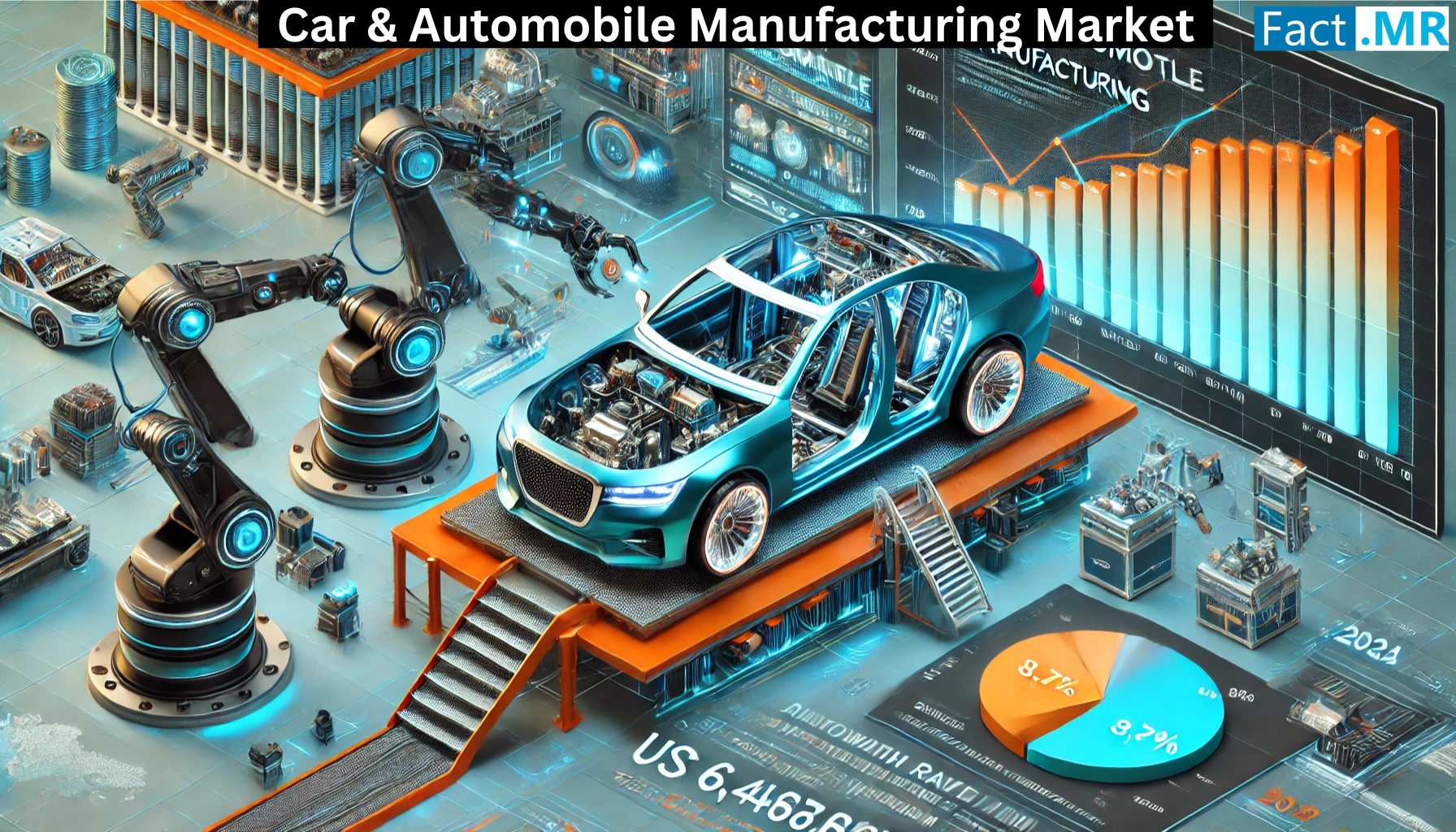
Key Takeaways from Market Study
- The car & automobile manufacturing market is forecasted to attain a valuation of US$ 6,457.67 billion by the end of 2034.
- The market in South Korea is analyzed to expand at a CAGR of 10.33% from 2024 to 2034.
- The East Asia market is projected to reach US$ 2,914.98 billion by 2034-end.
- Mexico is analyzed to advance at a CAGR of 5.1% in the North American region by 2034
- Based on the products and services, car sales are projected to rise at a CAGR of 9.3% from 2024 to 2034.
- The Oceania market is forecasted to expand at a CAGR of 7.5% through 2034.
“Cars enable global connectivity by efficient movement of people and goods across the country leading to every green sales worldwide,” says a Fact.MR analyst.
Leading Players Driving Innovation in the Car & Automobile Manufacturing Market
Key players in the car & automobile manufacturing market are TATA Motors, Mahindra & Mahindra, Bajaj Auto, General Motors, Hyundai Motor Limited, Ford, Jaguar Inc., BYD Auto, Eicher, Volkswagen.
Constant Investment by Manufacturers in R&D Activities for Improving Car Components Creating Prospects
As cutting-edge technologies change the market and generate previously unheard-of customer interest and sales growth globally, the automobile industry is undergoing a tremendous shift. While advanced driver assistance systems (ADAS) are making cars safer and more appealing to consumers who care about safety, electric vehicles (EVs) with longer ranges, quick charging times, and zero emissions are drawing in purchasers who care about the environment.
Modern cars are becoming mobile technology hubs because of smart networking features, including over-the-air upgrades, smartphone integration, and built-in AI assistants. Autonomous driving features, including self-parking systems and adaptive cruise control, are increasing driving accessibility and convenience for user groups.
These developments go beyond individual automobiles; automated logistics systems and effective fleet management technologies are now seen in commercial vehicles. To appeal to both corporations and environmentally concerned customers, manufacturers are also implementing sustainable materials and production techniques. The way we view and use cars in our everyday lives is changing because of the global automotive demand rising to unprecedented levels due to these technological breakthroughs.
